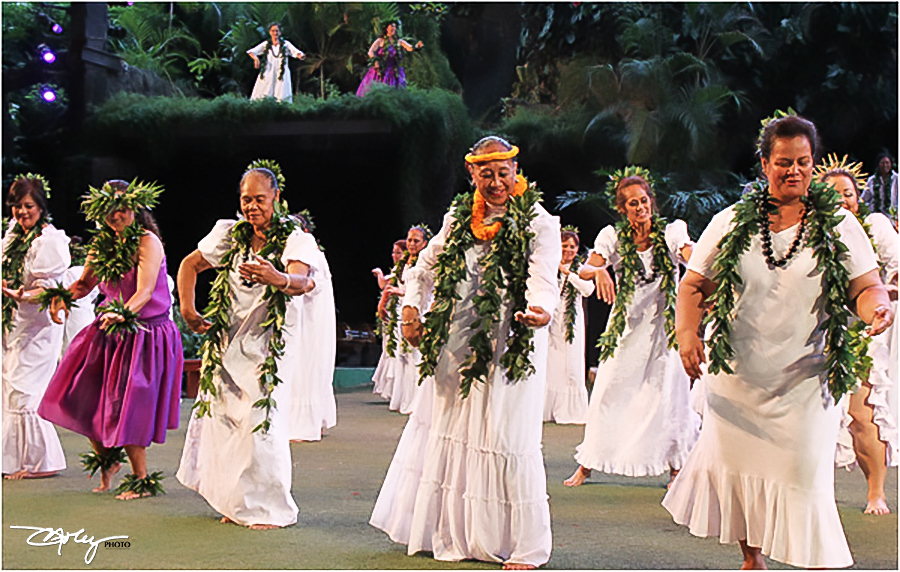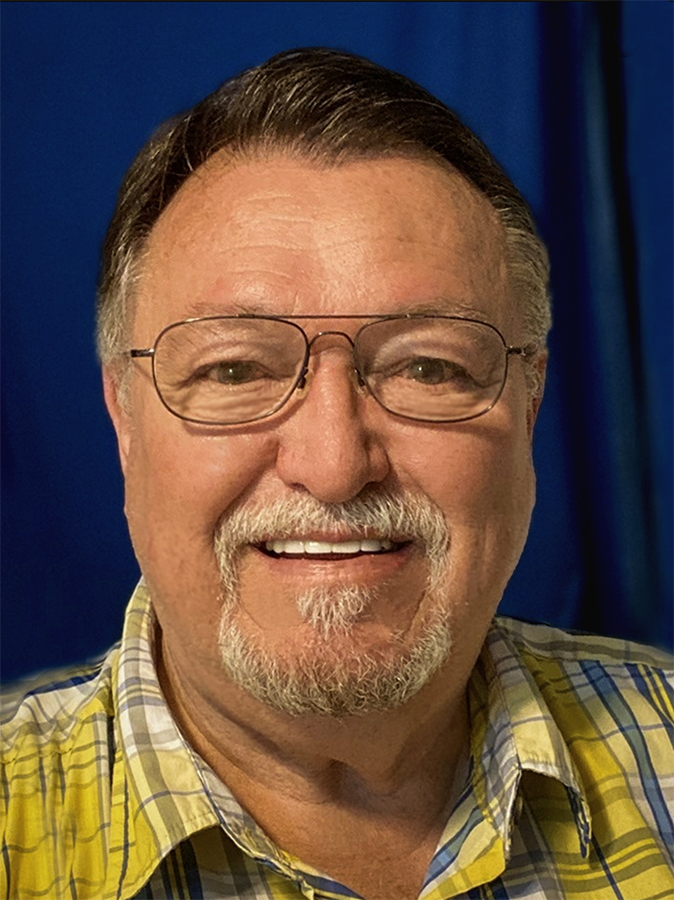
[Reprinted from a PCC e-newsletter that was sent out before the 50th anniversary celebration in 2013. Interview and photo by Mike Foley.]
Before the beginning… Aunty Lucy Kekela “Kela” Miller was born in Laie into a rich hula heritage that shaped her life and blessed our community.
As a new Kahuku High School graduate in 1963, when the Center first opened, Miller was among the first to work in the Hawaiian Village and dance in the night show. Since those distant days, she has been a kūpuna dancer in the night show, her hula hālau performs annually in the PCC’s Moanikeala Hula Festival, and she’s went onstage once again for the PCC’s 50th anniversary Gold Alumni Show in September 2013.
What the Polynesian Cultural Center means to her: The 50th-anniversary celebration is important to me because there has been so much history and so many beautiful things happening since we first started the Polynesian Cultural Center — the people we worked with, the leaders we had, learning our own cultures.
That summer before the Center opened, we had been practicing for the hukilau program with Aunty Christina Nauahi and my mom, Elizabeth Kuhia, but we didn’t know we were also practicing for the night show or that we were going to be a part of the PCC. Aunty Sally [Wood Naluai] also came as our kumu hula and taught us the dances. Then they said, “All of you, come over here [PCC] and dance.” We didn’t even know that we were getting paid. Still, everybody just came, and when we got our first paycheck, we were shocked. Sometimes, we would only work four or eight hours a week. Sometimes we would also go out on the highway and dance, to try to attract buses to turn into the parking lot.
Working in the Hawaiian Village: In the beginning, we worked in the Hawaiian Village with Mom and Pop Logan, and we also danced in the night show. That was so much fun.m mI can still remember Pop Logan would call the fishes, and they would come, as if they knew him; then he would feed them. They shared their knowledge and tried to teach us Hawaiian culture. PCC wasn’t just for tourists; it was for us, too. Although we were brought up here, the PCC made us realize it was important to hold on to our culture.
Now, 50 years later, we have gained all this knowledge. It’s so nice to see the people we’ve worked with and maybe haven’t seen for a long time. The reunion will bring back memories and people we haven’t seen. It will also bring back the spirituality of why we have the Cultural Center. It’s still the same, yesterday, today, and tomorrow. Sure, today the kids are different, and the shows are different, but to me, they’ve all gone up in quality. The shows we had back then fit the times, and the shows they have now also fit the times.
One of my favorite things nowadays is to still see people come, and say the Center was their favorite place to visit and had the best show they had ever seen. I recently marched in the Kamehameha Day parade in Waikiki to show our people that the alumni can still do some of those things we used to do. For me, it was showing the alumni of my time, come on, we need to get together. I wanted to participate so I could invite other alumni. There were a lot of people who saw me and said, “Man, I wish we were involved.”
I’m so happy I’m still here 50 years later and still part of all this. I plan to have a lot of fun during the reunion, and I encourage everybody who can come.
PCC presents Special Kauiwekiu Award to Aunty Kela
During the 50th-anniversary celebration’s Moanikeala Hula Festival in January 2013, Center President Von D. Orgill and Cy Bridges, director of special events, presented Aunty Kela with the Kauiwekiu [striving for the summit] Award:
“An outstanding alumna of the Polynesian Cultural Center, a wife, mother, grandmother, great-grandmother, who portrays the spirit of aloha and ho’okipa through her service and dance here within our moku, throughout Hawaii and overseas.”
“She is acknowledged for her service, participation, and leadership accomplishments within her community and as a member of the Laie Kūpuna Council, Laie Community Association, the Ko’olauloa Neighborhood Board, and for preserving the history, culture, and traditions of Hawaii and her ohana through music and hula as kumu hula of Hula Halau o Kekela and for her support each year of our Moanikeala Hula Festival, by not only performing but also by providing special leis, gifts or makana on behalf of the Polynesian Cultural Center, the community of Laie as well as our kūpuna to visiting hālau from afar for their participation in our hula festival.”
